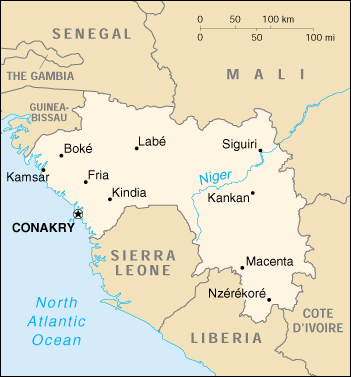

Status Quo Side: Ivory Coast
Non-Status Quo Side: Guinea
Region: Africa
Conflict Type: Interstate
Issues in Dispute: Governance
Relations between Guinea and Ivory Coast (IC), long strained by the ideological split between Guinean President Sekou Toure and IC President Felix Houphouet-Boigny (acknowledged leader of the French-speaking West African moderates), had been exacerbated by 1) Guinea's imprisonment of a high IC official, Francois Kamano, for alleged subversion, and 2) IC sponsorship of the OCAM regional organization in 1965 and its subsequent inclusion of discredited Premier Moise Tshombe's Congo (Zaire after 1971). [see CON] Relations worsened in the wake of Ghana President Kwame Nkrumah's downfall on February 24 1966 and his welcome in exile by Toure.
Reports of Toure's pledge to send forces via the Ivory Coast to help restore Nkrumah prompted Houphouet to deploy troops to block the "Guinean hordes," while also threatening French and Conseil de l'Entente (an African subgroup of the French Community) intervention. In February 1967 Guinea seized an off-shore IC trawler allegedly involved in a plot to kidnap Nkrumah. In June the Ivory Coast retaliated by arresting the Guinean Foreign Minister and UN representative when their plane landed at Abidjan. After mediation attempts by Liberia, Niger, Mali and the UN, an OAU summit conference finally opened the door to conciliation.
The Guinean diplomats were released simultaneously with 23 IC citizens (including Kamano).
After Toure's death in 1984 Guinea's relations with its African neighbors improved.